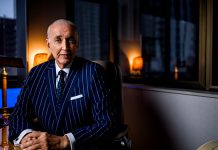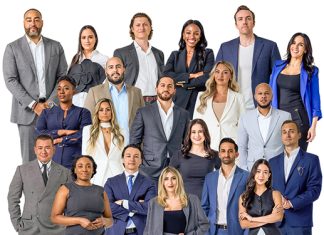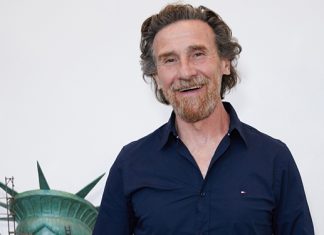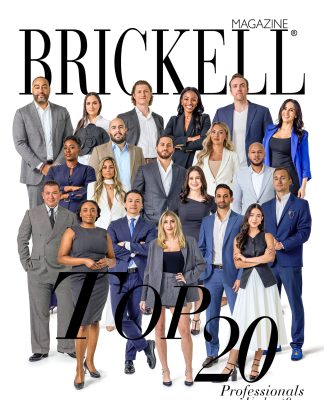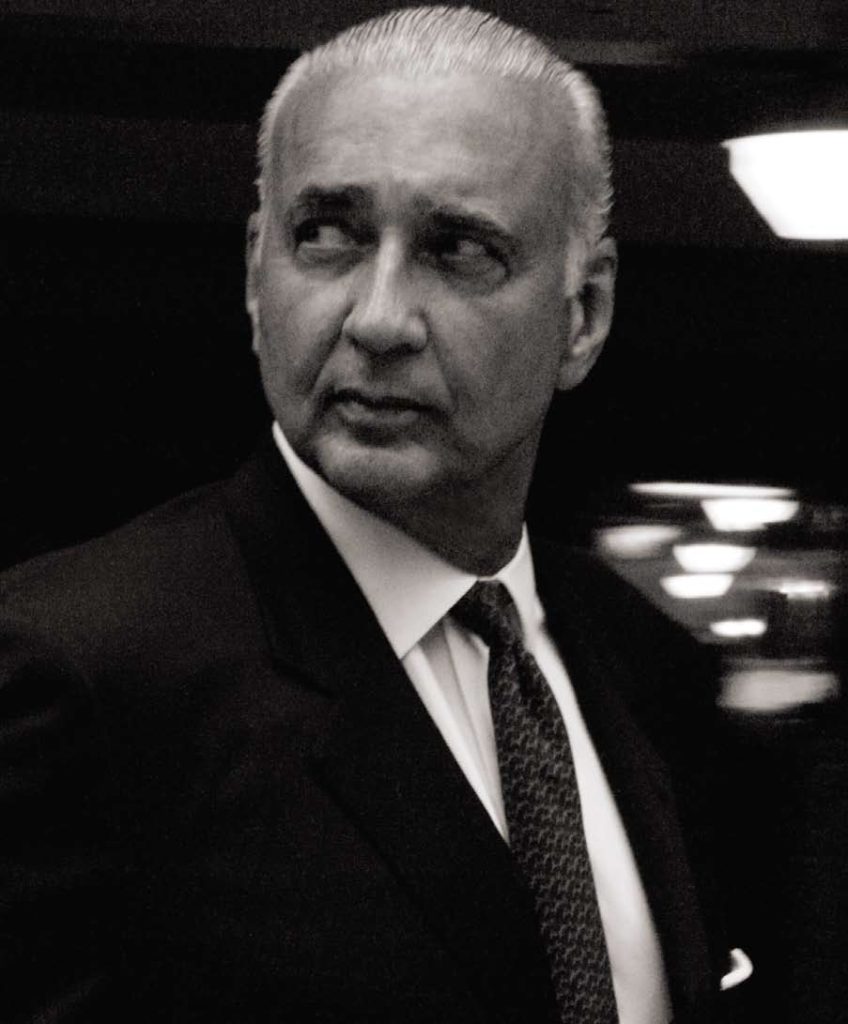
A couple sits down to celebrate their anniversary by thumbing through an old album of their Hawaiian honeymoon. As they flip the pages, they’re drawn to a candid shot of them by the shore with a young man in the background stringing seashells in a University of Hawaii t-shirt. They feel sorry for the poor lad and turn the page. What the couple doesn’t realize is that the guy behind them so many years ago is now the Chairman and CEO of Brand Institute, an industry-leading nomenclature firm that has named some of the world’s top brands for clients such as American Express, GlaxoSmithKline, At&T, McDonalds, Johnson & Johnson, Taco Bell, AstraZeneca, General Motors, Colgate-Palmolive and Merck, to name just a few.
In order to understand how this college student turned global branding powerhouse got to where he is, we have to start from the beginning. Growing up in a humble blue-collar neighborhood in Pittsburgh, Pennsylvania, James Dettore spent most of his leisure time watching old Cary Grant movies when he wasn’t concocting dreams of grandeur that were ignited by parents who always pushed him to excel in academics and sports. “For as long as I can remember, I had visions of being a pro baseball player,” The says. “I got a lucky break out of high school to play freshman baseball for Florida State University. The following year, I was approached by the University of Hawaii and of course accepted the offer to play in paradise.”
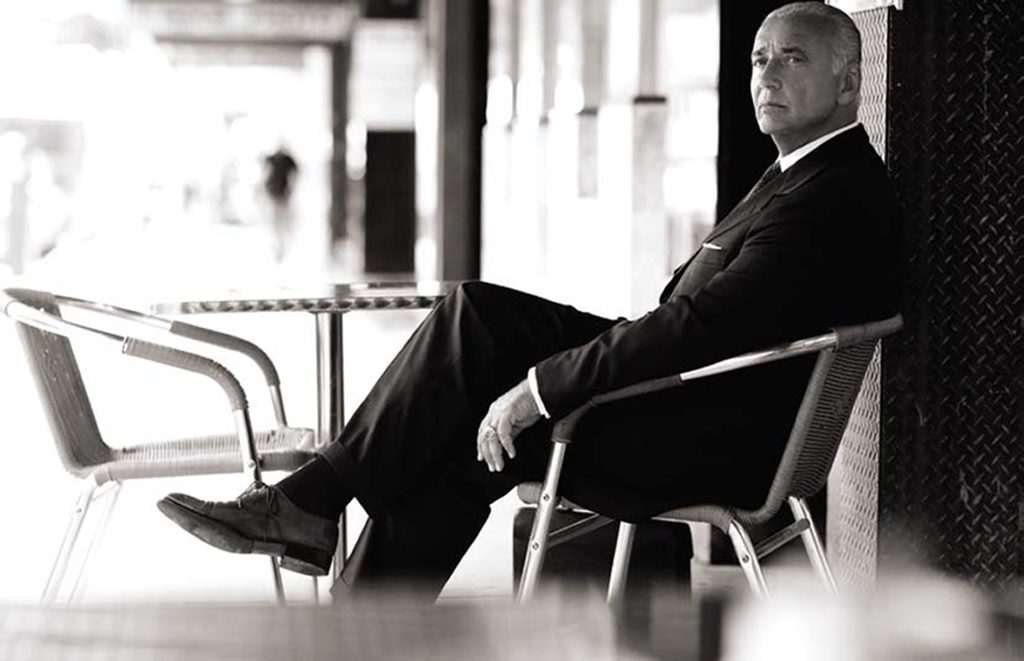
So it came that Dettore embarked on his first business making and selling shell necklaces to tourists on the Hawaiian mainland. “The craze was just starting back then,” he muses. “Every morning I’d go out on the north shore to collect shells and go through the intricate process of stringing them together.” This cottage industry did so well that it allowed him to purchase his first home. It also taught him how to take a concept from the initial stages to manufacturing and eventually to shipping via Phillipine Airlines, where he worked in the evenings throughout his college years to make ends meet. “It was a very good thing that all these pieces started falling in place, as it eventually became apparent that I was not very good at sports,” he laughs.
That experience proved useful when, upon graduation, he was offered a position in the sales department at the Kahala Hilton. The hotel sent him to Cornell University’s Hotel Management Program for a thorough understanding of the hospitality business. Eventually, he was put in charge of VIP Services at the resort. It was in that role that he met the man who would change the entire course of his career. Andrall Pearson III, the President and CEO of PepsiCo, was a regular at the hotel and more than impressed at Dettore’s ability to coordinate his golfing outings and dining experiences. “He took notice of my eagerness and willingness to please and offered me a job,” says Dettore. “It was an opportunity I couldn’t refuse.” James Dettore likes to take time to reflect by himself whenever his busy schedule allows. He particularly enjoys relaxing in the area surrounding his global headquarters in the heart of Downtown Miami.
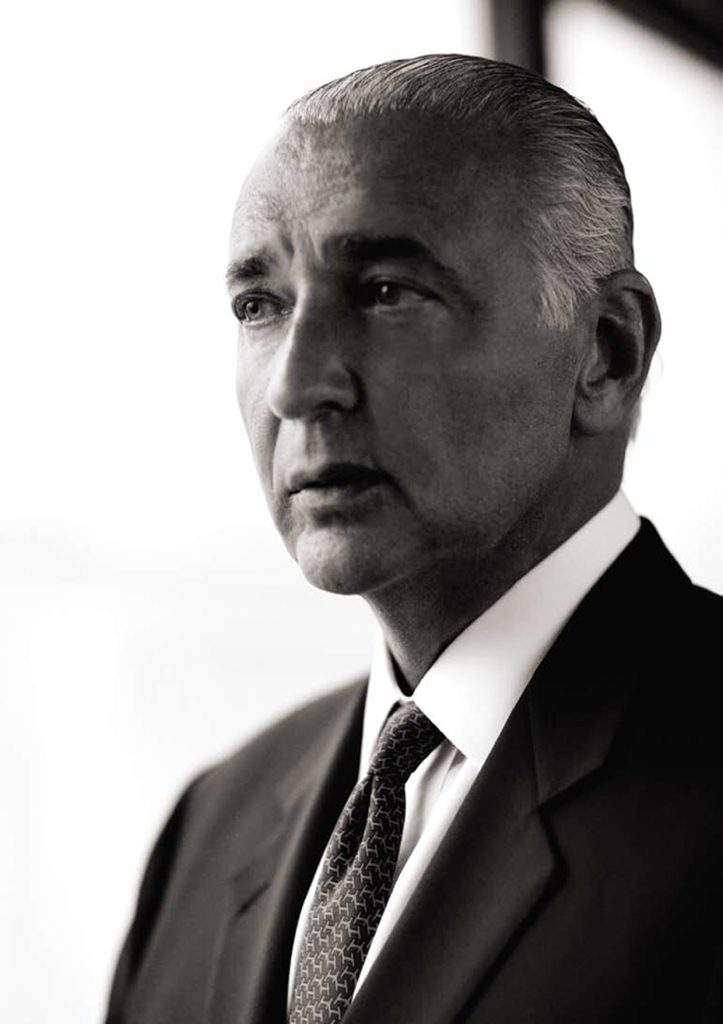
AT A SIDEWALK CAFÉ, MIAMI AFFORDS JAMES DETTORE THE OPPORTUNITY TO APPEAL TO A GLOBAL CLIENTELE WITH AN ALLURE THAT REPRESENTS THE CREATIVITY, DIVERSITY AND MYSTIQUE OF ONE OF THE GREATEST BRAND IDENTITY COMPANIES IN THE WORLD.
Through his new role as Director of Corporate Communications for PepsiCo subsidiary Pizza Hut, Inc., Detorre was able to travel extensively for meetings and conventions with some of the top officers for the many divisions of PepsiCo including Pizza Hut, Taco Bell and KFC. “The position helped me transition from sales to marketing and gave me a better understanding of the corporate nuiances at the top of some of the world’s most respected businesses,” he says. “From that point forward, I began to see real opportunity in business.”
But Pearson wasn’t done with Dettore yet. “One day he sat me down and challenged me by simply saying: ‘It’s time for you to go back to school for a master’s degree.’” As a result, Dettore earned a masters in Communications from Wichita State University and eventually, while he was simultaneously managing his own business many years later, from the Harvard Graduate School of Business Administration. “I couldn’t believe the real-world insight I gained from the case studies at Harvard Business School — each proved relevant as I managed the many challenges new businesses must face,” he says. “That education was critical in order to compete successfully in today’s innovative global business environment.” Today, Dettore is a member of the Owner- President Management Committee for the Harvard New York Chapter, a group comprised of Harvard alumns that meets every month to share valuable insight as an outside Board of Directors of sorts for each other’s companies.
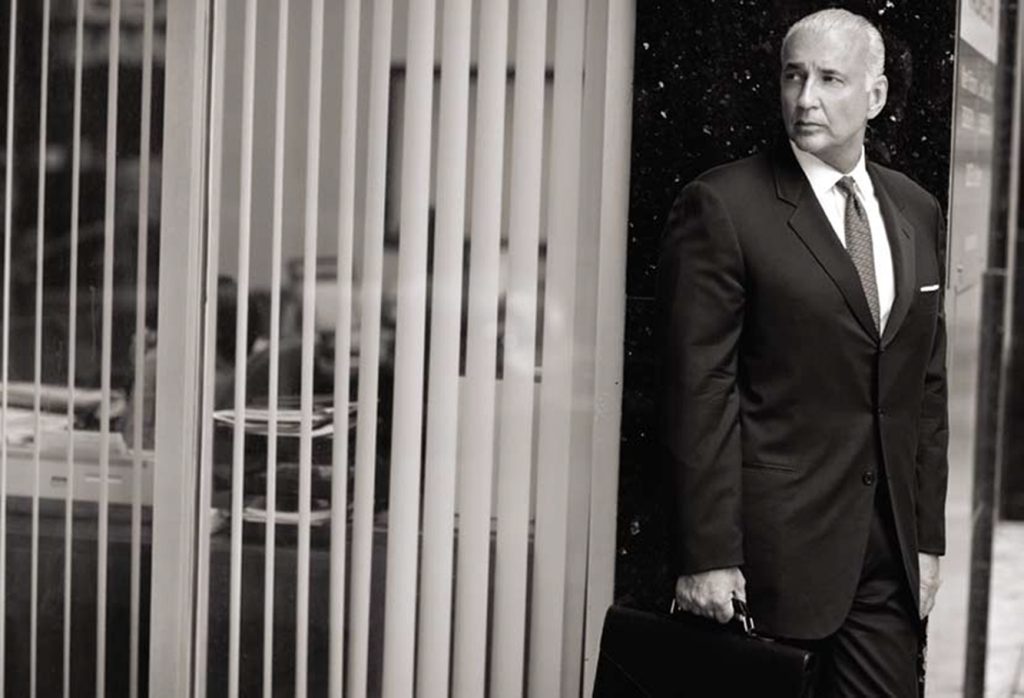
After his first masters, Dettore took on executive-level stints with Ralph Lauren and Burger King, before being contacted in 1985 by a headhunter who offered him the opportunity to work with Interbrand, one of the first branding companies in the U.S. “At that time, the concept of branding was still in its infancy stage,” he says. “Everything I learned was on-the-job and I put in many long hours and hard work, applying the disciplines and skills I had acquired in my previous posts.” Consequently, as second-in-command at the firm, he helped bring the concept of branding into mainstream consciousness. Eight years after accepting his position with Interbrand, Dettore launched Brand Institute in New York City, a company that today is an industry-leading, multi-national branding firm offering a robust portfolio of naming, research, regulatory and design services to some of the world’s most recognized organizations.
But Dettore’s first solo leap into the corporate world wasn’t as simple as he’d hoped. “When I went to get my first Small Business Administration (SBA) loan, they gave me 13 lenders to apply to…the first 12 rejected me,” he says. “Thankfully, ‘Lucky #13’ was the charm and I was in business.”
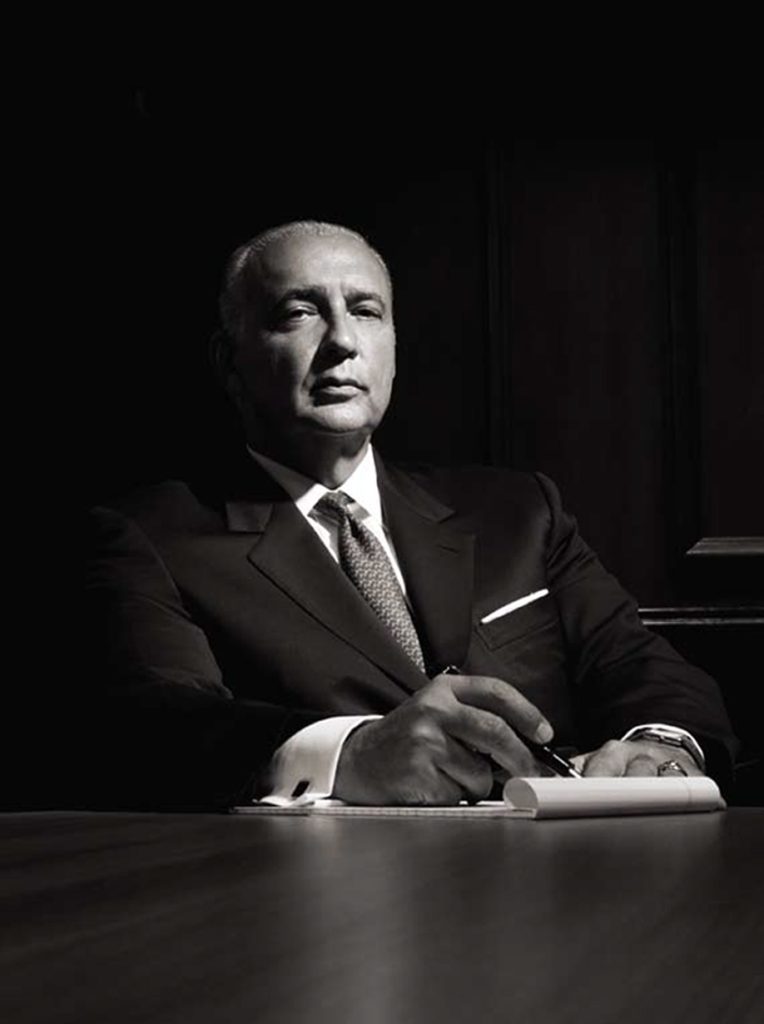
The first year of operations presented its own unique set of hurdles. “The most difficult moments were when clients kept telling me that they could not take the risk of choosing Brand Institute until we had more experience and furthered our reputation,” he says. “Focus, assertive sales efforts and great client service got us past the first — and the most difficult — year.”
Then in 1997, Dettore’s accountant suggested moving out of New York City for tax purposes, and The Magic City was naturally at the forefront as an alternative headquarters. “I love the ocean, the sun and the excitement that Miami offers,” says Dettore. “I knew almost instanly that this was clearly the kind of city for Brand Institute to call home.” Over time, Miami surpassed all his expectations and his business is now perched atop the Ocean Bank building at 200 SE 1st Street…right on the pulse of the ever-booming city. “From hosting power lunches at Brickell’s Captial Grill to sipping Cuban coffee at a sidewalk café, Miami affords the opportunity to appeal to a global clientele with an allure that represents the creativity, diversity and mystique of one of the greatest brand identity companies in the world,” he says.
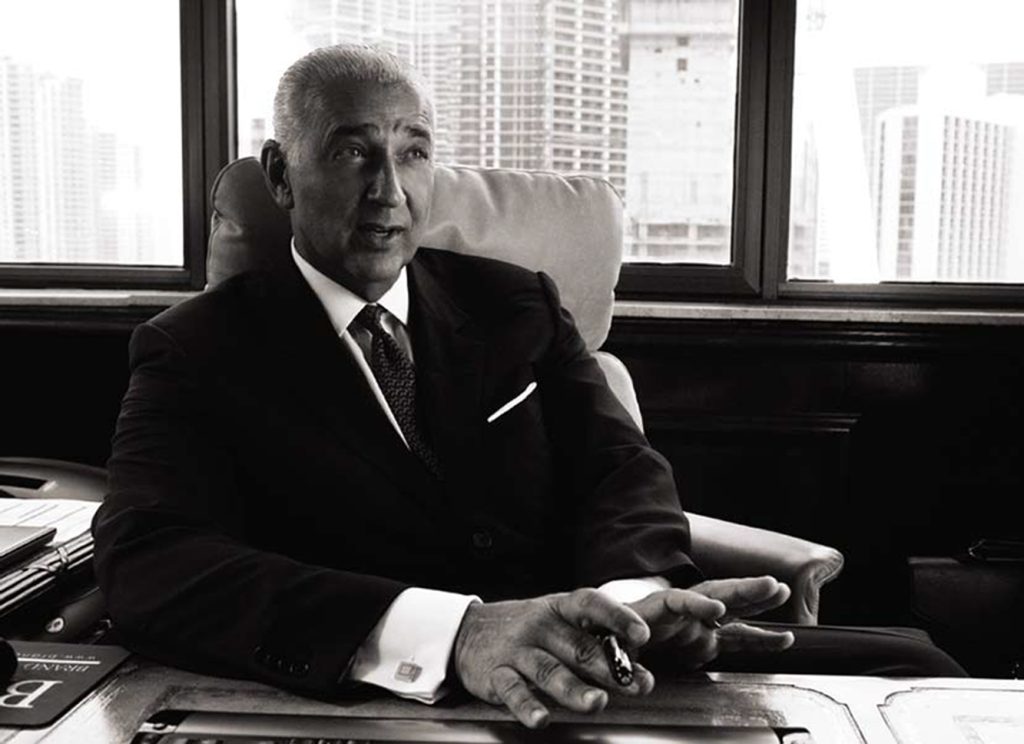
Despite South Florida’s year-round sunshine and warm temperatures, Dettore says he never had to sacrifice his classic contemporary styling of three-button suits, spread collars with French cuffs and accent ties for more tropical attire. “My parents told me at an early age to dress for success, and that you could never overdress in business,” he says. “After 25 years in the identity business, these early impressions still hold true today.”
It seems dressing for success has translated favorably into Dettore’s empire. Besides headquarters in Miami, Brand Institute currently has offices in Austin, Chicago, Frankfurt, Geneva, London, Los Angeles, New York, Ottawa, Raleigh-Durham, Rockville, San Francisco, Tokyo and Toronto. Dettore also plans to add a few more European and North American locations to further solidify the company’s global presence. Additionally, Dettore has created two subsidiary organizations, Drug Safety Institute for Regulatory Affairs Services and Research Solutions Institute, which are also industry leaders in their own right. Between January and June of this year, Brand Institute named 77% of all the FDA-approved pharmaceutical drugs and 71% of approved pharmaceuticals for the European Medicines Agency (EMEA), the FDA’s equivalent in Europe. Currently, eight of the top 10 direct-to-consumer drugs on the market and 90% of future “pharmaceutical blockbusters” have been named by Dettore and his team.
So it comes that the humble boy from Pittsburgh who spent hours watching Cary Grant movies at home before stringing shell necklaces by the seashore in college has surpassed all of his expectations, despite the many challenges he faced along the way.
Which leads us to our final question: What’s the most prized business tool in this man’s arsenal? “I always sign important documents with a Mont Blanc fountain pen,” he says. “This has been a religious ‘successory’ for me since I started in business. It just makes important documents standout even more.” And with that, he’s off to help name another brand we will all be chatting about for years to come around the dinner table.






